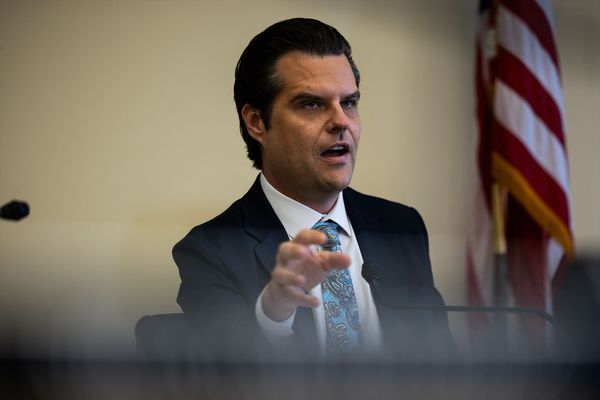
A rottenness has crept into the heart of boardroom Australia, spurred on by a system of crony capitalism embedded in Australia by stealth. The interests of investors and the community are continually being jeopardised by corporations going rogue and politicians have turned a blind eye to reforming the system.
The recent reputational implosion of Qantas is just the latest in a long line of corporations that have succumbed to greed — ethical failings papered over by prioritising shareholder value. After all, profits are the essence of corporate existence. However, the culture has become one of profits-at-all-costs. The dangers of this have been ignored.
Few could have predicted the extent of Qantas’ fall when its controversial, high-profile former CEO Alan Joyce posted a company record profit of $2.47 billion in May. But behind its historic turnaround lay its ruthless culture: allegedly selling tickets for cancelled flights; illegally sacking ground staff; continually downgrading customer service; muscling up on government to fend off competition; and dragging its feet on returning credit to customers. It’s a quagmire of rogue behaviour — but it helped deliver the record profit.
The Qantas scandal came on top of an even more shocking one. Giant consulting firm PwC was found to have brazenly traded confidential information it gained in the course of consultancy work for the federal Treasury. It disclosed sensitive information about the government’s attempts to crack down on multinational tax avoidance to the very same multinationals.
Go back a few years and two royal commissions were required to clean up the mess of corporate malfeasance in the financial services and aged care sectors. In fact, corporate scandals have plagued Australia since the “corporate cowboys” of the 1980s captured the public’s imagination with their debt-fuelled, daring company raids until the risky business model imploded. Along for the ride, the media loved their lavish lifestyles and turned them into business gurus and lovable rogues. But the bankruptcies of just two — Alan Bond and Christopher Skase — amounted to several billion dollars.
Instead of learning from the ’80s and the crony capitalism that corrupted politics in several states, successive governments have persisted with the corporate-friendly model that has continued to expose investors and the public to unnecessary risk.
Having studied 13 of the biggest corporate scandals of the past 40 years, I’ve identified a range of common drivers of rogue corporate behaviour: the rise of celebrity CEOs with their flawed personalities; excessive CEO remuneration packages; poor corporate culture focused on aggressive pursuit of short-term profits; poorly performing boards; weak regulators; inadequate penalties for bad behaviour, and corporate capture of government policy processes.
In effect, too many corporations have been allowed to grow too powerful, too greedy and too unaccountable.
For decades Australia’s corporate boardrooms have been bastions of the American economist Milton Friedman’s neo-liberal doctrine that the only responsibility a corporation has is to make a profit for its shareholders. Taken to excess, it’s a dangerous idea for the community, the health of the planet and the long-term sustainability of corporations.
The sheer greed driving many corporations is simply staggering, but what’s often missed is how greed has warped corporate behaviour.
The Russell Withers-owned 7-Eleven became a $4-billion-a-year empire in Australia on the back of a company-wide underpayment of wages scam. Yet Withers denied knowing the practice was going on. Bupa collapsed standards in nursing care around the country to chase high profits — widespread suffering was the inevitable result. Westpac scrimped on buying state-of-the-art anti-money laundering technology. Its cheaper product gave a green light to paedophiles sending small amounts of money cheaply to the Philippines for live child-sex streaming. Executives claimed they didn’t know it was happening.
And as banking royal commissioner Kenneth Hayne said of the Big Four banks: too often they were motivated by greed “at the expense of basic standards of honesty”. Crown Resorts built a business model knowingly based on attracting Chinese high-rollers, some of whom were connected to criminal triad gangs. Money laundering through Crown’s casinos was their real game. Star casinos have been exposed for engaging in the same business model.
Rio Tinto blew up the Indigenous archeologically rich Juukan Caves in WA to boost its bottom line. The China boom beckoned. Rio’s CEO Jean-Sébastien Jacques commissioned a report on the significance of the caves but then claimed he hadn’t read it before lighting the fuse on Indigenous heritage.
As these examples show, shareholder value has become a mantra for many large corporations. Qantas is a classic example. Under Joyce’s 15-year reign, the company’s share price rose from $1 to more than $6 — impressive in anyone’s book — until the ruthless cost-cutting that it produced is taken into account.
Joyce ripped $2.1 billion in costs out of the company by squeezing customers and sacking thousands of workers and then rehiring many through Qantas-owned labour-hire firms on reduced salaries and benefits. Maintenance and cleaning costs were also said to have been stripped to the bone. All the while Joyce’s take-home pay swelled to more than $20 million annually. Some began asking if Joyce was running the company to increase his personal wealth. It’s impossible to know, but the potential conflict of interest is glaring.
Too little attention has been paid to the downside of excessive CEO remuneration. In 2010, after the global financial crisis, the Productivity Commission examined the issue. While it found a range of contrasting views, it noted that the excessive remuneration encouraged “a short-term approach by senior executives, including undue risk-taking”. Its comments fell on deaf ears.
Why don’t boards stop corporations from going rogue? Richly rewarded board life is too often regarded as a sinecure. Payment for being a (part-time) board member of an ASX100 company ranges between $160,000 and $300,000, and many have multiple board memberships. In too many cases, board members don’t sufficiently challenge management. They collectively buy into the shareholder-value corporate eco-system and get overwhelmed by autocratic, ego-driven, celebrity-enhanced CEOs.
Too many board members are also drawn from elite business circles, networked as if they are members of a private club. Too few want to rock the boat. When a corporation plunges into scandal, it is rare for board members to be made accountable.
Of course there are ethically run corporations in Australia, but a warped corporate culture has become an embedded feature of how power works. Sections of the economy have taken on the feature of crony capitalism — a symbiotic relationship established between large corporations and governments such that corporate business ventures get favouritism in return for political donations and lucrative post-political careers.
Corporate “dark money” has flooded the political system and corporate lobbying is on steroids. And Joyce’s invite-only Qantas lounges brought all the elites together. Both soft and hard power cement politicians to corporate interests. But what about the public interest?
Carefully managed, crony capitalism doesn’t breach any rules around corruption. Scandals come and go; disgraced executives walk away with their bonuses; government outrage produces the odd inquiry. Nothing changes.
It’s way beyond time this system was reformed and corporations were made to meet community standards.
Is this sort of behaviour corrupt? Let us know by writing to letters@crikey.com.au. Please include your full name to be considered for publication. We reserve the right to edit for length and clarity.
Quentin Beresford is the author of Rogue Corporations: Inside Australia’s Biggest Business Scandals, published by NewSouth and available next month.







